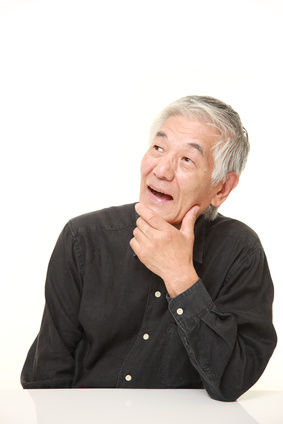Happiness
What if You Were Granted One Wish, What Would It Be?
If you truly want peace and happiness, accept what is happening now.
Posted January 20, 2017

If you’re familiar with twelve-step programs, such as Alcoholics Anonymous, you’ve probably heard their foundational prayer:
God grant me the Serenity to accept the things I cannot change, Courage to change the things I can, and the Wisdom to know the difference.
It’s also referred to as the Serenity Prayer. A similar version of this prayer exists in the major world religions. For instance, “Thy will be done” appears in Christianity. The Bhagavad-Gita, which is the sacred writing of Hindu philosophy, tells followers to find the healthiest seed, plant it in the richest soil, give it the most nutritious water, and provide it the perfect amount of sun and shade. Once we’ve done this, we’ve done our best, and the result is out of our hands.
Men and women who follow a religious tradition with a prayer component often fill their devotions with requests for this or that. And when their petitions aren’t met, they express disappointment if not downright frustration.
They may ask themselves, “Why hasn’t my prayer been answered?” and they’re left wondering why they’re being ignored. Unfortunately, such a perspective indicates a person doesn’t understand the Serenity Prayer’s true meaning. In this post, we’ll explore how this prayer reminds us to live in the present moment.
At its core, the Serenity Prayer tells us that what is happening right now is exactly what’s supposed to be taking place. That is to say, we are encouraged to accept what is and live in the now. Allow me to illustrate this point:
Every night, Rick would sit at the foot of his bed and pray. His supplication usually included a lot of complaining about what was going wrong in his life.
One night, as he was performing his nightly devotion, a voice came out of nowhere. It was none other than God talking to him:
“Rick, for years, you’ve been asking me for things and you’ve complained about what you don’t have. I’ve been listening to you all along. Let me make a deal with you. I’m going to grant you one request. You have exactly six months to decide what you want. I encourage you think hard about it and make it a good one because it’s the only request for the rest of your life you’re guaranteed to get.”
He was both thrilled and nervous about God’s promise. The next day, he reached out to his family and friends to receive their suggestions.
“Should I ask for money?” he asked one friend.
“No. Money can’t buy happiness. Plus it comes with a ton of headaches—like when everyone you know will come begging you for it,” the friend replied.
“Should I ask to live a really long time?” Rick asked another friend.
“No. That means everyone you love will die before you. Do you want to be alone the rest of your life?” the friend asked.
For the next six months, Rick continued seeking input from those around him—he couldn’t come up with one request that fully satisfied him. At the end of month six, God spoke to Rick:
“Alright my son, what have you decided?”
“Before I answer, can I ask one question?”
“Yes,” God said.
“Can you tell me what I should wish for?” Rick asked.
“Very well. I advise you to ask me for this: Whatever happens, whatever life gives you, you will be content with it,” God said.
His recommendation wasn’t what Rick was hoping to hear.
The message of this story is simple: If you truly want peace and happiness, accept what is happening now, as what is supposed to be happening now.
“But does this mean if I experience injustice or if I can change something, I shouldn’t do anything about it?” you may ask.
No. Seek justice where there is injustice. Change circumstances when you need to. Work toward goals. Do your best at everything worthy of your effort. Improve your life. Alleviate pain for yourself and others. But once you have done your part, don’t cling to a set outcome. Flow with the result and believe that all is well.
Our suffering comes when we work toward a particular goal, and we reject the outcome if it doesn’t align with what we wanted. This reflects a misunderstanding between what we can control and what we can’t. We can control our actions. We can’t control the outcome.
By letting go of our attachment to a particular result, we acknowledge that happiness is a state that comes from within. The goods news is that when we recognize true happiness is an inside job, we recognize it’s always available to us, no matter what.


